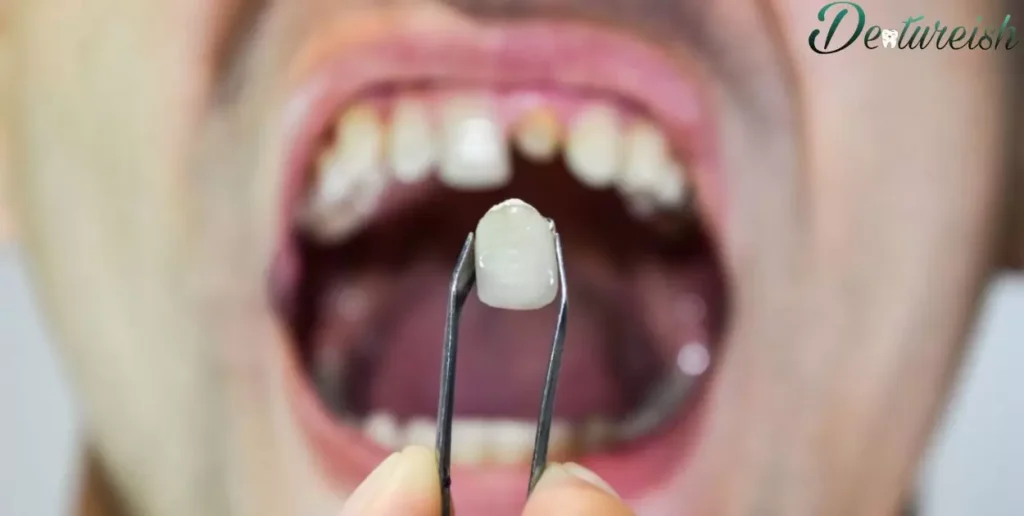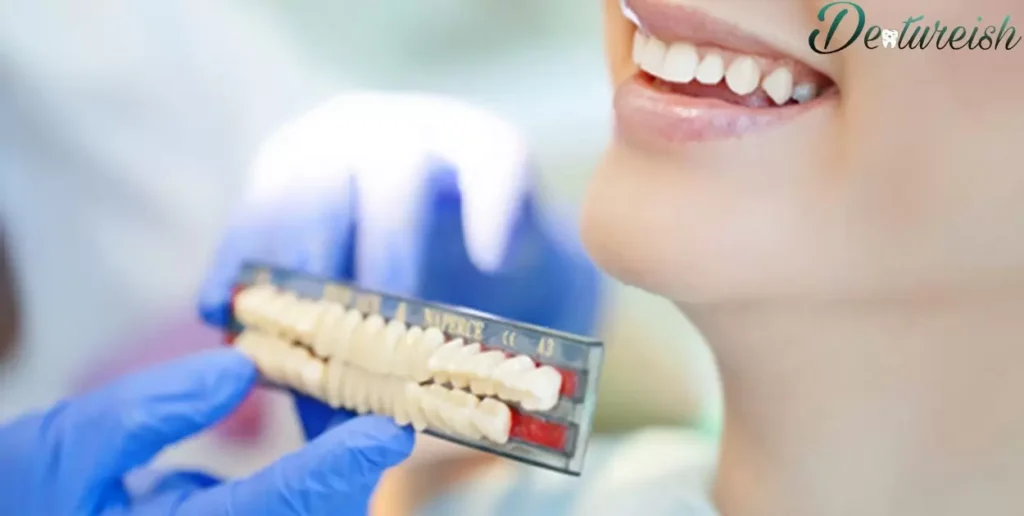Getting new dentures depends on wear and tear. Every 5-7 years, changes in your mouth may require new ones. If dentures crack, loosen, or cause discomfort, it’s time for replacements. Regular dental check-ups help assess if new dentures are needed sooner.
Are you wondering, How often should you get new dentures? The answer lies in the changing landscape of your oral health. Discovering the perfect timing for denture replacements can ensure a comfortable and effective fit, keeping your smile bright and your confidence soaring.
When considering How Often Should You Get New Dentures, it’s crucial to monitor changes in your mouth and denture fit. Regular dental check-ups help determine if replacements are needed, ensuring comfort and functionality. Stick with us to learn more about maintaining a healthy and confident smile with timely denture updates.
Your Dentures Feel Loose, Or Are Falling Out
If your dentures feel loose or are falling out, it’s essential to act promptly. Loose-fitting dentures can cause discomfort and affect your ability to eat and speak comfortably. Visit your dentist for adjustments or replacements to ensure your dentures fit securely, allowing you to confidently enjoy daily activities without worry.
Ignoring loose dentures may lead to irritation or sores in your mouth and impact your overall oral health. Taking quick action by consulting your dentist will help address the issue and prevent further complications, ensuring your dentures fit snugly and comfortably for your day-to-day comfort and well-being.
You’re Having Difficulty Speaking Clearly
This could be linked to your dentures. Ill-fitting or worn-out dentures often lead to speech difficulties. Ensuring well-fitted dentures through regular check-ups can significantly improve speech clarity. Don’t let speech issues linger get your dentures checked to speak confidently and comfortably again.
When speaking becomes a challenge, it might be time to reassess your dentures. Difficulty in articulation commonly stems from poorly fitting dentures. By addressing this issue promptly with a dentist, you can restore clear and fluent speech, ensuring better communication in daily life.
Your Dentures Are Causing Discomfort Or Harming Your Gum Tissue
If your dentures cause discomfort or harm your gum tissue, it’s crucial to address these issues promptly. Discomfort might indicate an ill-fitting denture, leading to irritation. Seeking a dentist’s help can resolve these problems and prevent further gum tissue damage.
“Ignoring discomfort or gum irritation from dentures can worsen oral health. Seeking immediate assistance ensures a proper fit, avoiding harm to your gums and ensuring a comfortable experience wearing dentures. Arches Are In Dentures, and addressing any issues promptly is crucial for maintaining good oral hygiene.”
Your Dentures Are Damaged Or Discolored
If your dentures show signs of damage or discoloration, it’s time to consider replacements. Damaged dentures may cause discomfort and affect your ability to chew properly. Discoloured dentures can impact your smile’s appearance, indicating the need for a fresh set to restore confidence and functionality.
Regular check-ups with your dentist ensure early detection of issues, allowing prompt action for new dentures if necessary.When your dentures become damaged or discoloured, it’s essential to address these issues promptly. Damaged dentures might lead to discomfort while eating or speaking.
Discoloration could affect your smile’s aesthetics, influencing your confidence. Seeking timely replacements through regular dental check-ups ensures maintaining a comfortable, functional, and aesthetically pleasing set of dentures for your everyday use.
How Often Do Dentures Need To Be Replaced?
Dentures usually require replacement every 5 to 7 years due to wear and changes in your mouth. Regular check-ups with your dentist help assess when new ones are needed. If your dentures become loose, cracked, or cause discomfort, it’s time for a replacement to maintain optimal function and comfort.

The frequency of denture replacement relies on wear and changes in oral health. Your dentist will guide you based on your specific needs, ensuring your dentures stay functional and comfortable for years to come. Regular check-ups play a crucial role in determining the right time for replacements, keeping your smile bright and confident.
Superior Denture Replacement At European Denture Center
At the European Denture Center, we offer exceptional denture replacements. Our skilled team ensures superior quality in every aspect of the process, from assessment to fitting. We prioritize your comfort and satisfaction, providing precise and personalized solutions for your denture needs.
With a focus on excellence, European Denture Center delivers top-tier replacements. Our dedicated experts utilize cutting-edge techniques and materials, guaranteeing a comfortable and natural fit. Experience unmatched quality and care at our center for a seamless denture replacement journey.
Denture Maintenance And Upkeep
Keeping dentures in top shape is essential for their longevity. Daily cleaning using a soft brush and mild soap prevents plaque buildup. Soaking them in a denture solution overnight maintains their shape and hygiene. Regular dental check-ups ensure any issues are caught early, keeping your dentures comfortable and functional for longer.
Alongside cleaning, handle dentures with care to avoid damage. Avoid using hot water, as it can warp the material. When not in use, store them in a denture-safe container filled with water to prevent drying out. Following these simple maintenance steps ensures your dentures stay in great condition, offering a confident smile day in and day out.
How A Dentist Can Help You To Replace The Teeth In Your Dentures
- Assessment: Dentists evaluate your existing dentures and your oral health to determine the need for replacements.
- Customization: They create custom-made dentures tailored to fit your mouth perfectly, ensuring comfort and functionality.
- Expert Advice: Dentists guide you through the options available for replacing teeth, discussing materials and styles that best suit your needs.
- Fitting and Adjustments: Dentists ensure the new teeth in your dentures are properly fitted and make necessary adjustments for optimal comfort and functionality.
- Ongoing Care: They provide instructions for care and maintenance of your new dentures, ensuring their longevity and your oral health.
Experience The Definitive Dental Difference By Booking An Appointment Today
Discover the distinct dental advantage when you schedule an appointment today. Our team delivers personalized care that ensures a positive and tailored experience for every patient. Uncover the difference firsthand by booking your appointment now and embracing exceptional dental care.
With our commitment to personalized attention, your dental needs are at the forefront of every visit. We prioritize your comfort and satisfaction, offering a definitive dental experience that exceeds expectations. Take the first step towards optimal oral health by scheduling an appointment today and experiencing our exceptional care firsthand.
It’s Time To Replace The Teeth In Your Dentures
If your denture teeth start showing signs of wear, like cracks or unevenness, it’s time for replacements. Worn teeth affect chewing and appearance, so timely changes are essential. Your dentist can evaluate and suggest new teeth, ensuring a better fit and a confident smile.
Replacing denture teeth becomes necessary when wear and tear impact function or aesthetics. When cracks or irregularities appear, these replacements restore proper chewing ability and enhance your overall appearance. Consulting your dentist ensures timely changes for improved comfort and functionality.
Why Do You Have To Replace The Teeth In Dentures?
You need to replace the teeth in dentures because they wear out over time. Daily use, chewing food, and regular wear cause gradual deterioration. As the teeth wear down, they become less effective for chewing, impacting your ability to eat comfortably.

Replacing the teeth in dentures ensures better functionality and efficiency. By swapping out worn teeth, you maintain optimal chewing ability, preventing discomfort while eating. Regular replacement also maintains the appearance and functionality of your dentures, allowing for a confident smile and ease of use.
Broken And Cracked Dentures
| Aspect | Description |
| Causes | Accidental drops, improper storage, chewing hard foods |
| Symptoms | Visible cracks, sharp edges, discomfort while wearing |
| Consequences | Difficulty chewing, mouth sores, gum irritation |
| Prevention | Handle with care, use a soft brush for cleaning, store properly |
| Solutions | Dental repair or replacement, based on severity of damage |
Contact Mile Zero Denture Clinic
Get in touch with Mile Zero Denture Clinic for top-notch denture services. Our clinic provides expert care and tailored solutions for your dental needs. You can reach out to us today to schedule an appointment or inquire about our range of services, ensuring a confident smile that fits you perfectly.
At Mile Zero Denture Clinic, we prioritize your comfort and satisfaction. Our team offers personalized care, utilizing advanced techniques for optimal results. Contact us now to experience exceptional denture services and regain your confidence in your smile.
They Feel Loose Or Fall Out
If your dentures feel loose or fall out, it’s a sign that adjustments may be necessary. Loose dentures might indicate changes in your mouth structure or wear and tear. Visiting your dentist allows for quick fixes to ensure a snug and comfortable fit, preventing discomfort and restoring confidence in your smile.
When dentures feel insecure or fall out unexpectedly, it’s time for professional attention. Loose fittings can stem from changes in your mouth over time or daily use. Seeking prompt adjustments from your dentist ensures your dentures fit securely, allowing you to go about your day confidently without worrying about discomfort or slippage.
Changes In Your Facial Appearance
Your facial appearance changes over time due to various factors like aging and lifestyle. As you age, loss of collagen and changes in bone structure can affect your facial contours, causing wrinkles and sagging skin.
Lifestyle choices such as smoking, sun exposure, and poor nutrition also impact your appearance, accelerating these changes.Weight fluctuations can alter facial contours, leading to changes in cheek fullness and jawline definition.
Regular exercise, a balanced diet, and skincare routines can help mitigate some effects, maintaining a more youthful appearance. Understanding these factors empowers you to make informed choices for preserving your facial aesthetics.
Discoloration Or Damage To Dentures
- Discoloration of dentures can occur due to various factors such as consuming certain foods, drinks like coffee or red wine, or smoking.
- Improper cleaning methods or using abrasive materials can lead to scratches or damage on the denture surface.
- Exposure to hot liquids or harsh chemicals might cause warping or deformation of dentures.
- Regular cleaning using appropriate denture cleaners and techniques can help prevent discoloration and maintain their integrity.
- Consult your dentist if you notice any significant discoloration or damage for proper assessment and potential replacement.
How Often Can You Get New Dentures With Medicaid
Medicaid guidelines determine how often you can replace dentures. Usually, it’s every 5-10 years, but this varies by state. Dentists assess the need for new dentures based on wear and changes in your mouth. Checking your Medicaid coverage helps understand when and how often replacements are covered.
When relying on Medicaid for new dentures, it’s crucial to know your state’s specific regulations. Denture replacement frequency depends on individual needs and Medicaid policies. Dentists play a key role in evaluating the necessity for new dentures and ensuring alignment with Medicaid coverage guidelines.
How Many Hours A Day Should You Wear Your Dentures
Wearing dentures for around 8 to 10 hours each day is recommended. This duration allows your gums and jawbone to rest and prevents discomfort or sores. It’s important to remove your dentures at night to give your mouth a chance to recover and maintain oral health.
Some dentists advise a shorter period initially, gradually increasing wear time. Starting with shorter intervals helps your mouth adapt to the dentures, reducing soreness. Remember, consistent wear within the recommended hours supports both comfort and oral well-being.
Why Do Dentures Shorten Your Life
Dentures don’t directly shorten life; instead, they can affect nutrition. Ill-fitting dentures may lead to difficulty chewing and swallowing, impacting food intake. This can result in poor nutrition, which, over time, might contribute to health issues.

Furthermore, wearing uncomfortable dentures may cause stress and impact overall well-being. Seeking proper fitting and regular dental check-ups can improve comfort, ensuring a better quality of life and supporting overall health.
Denture Replacement Cost
Replacing dentures incurs costs varying from $500 to $5,000, influenced by materials, customization, and dental fees. The expense encompasses consultations, impressions, and the final fitting. Insurance coverage or dental plans might aid in reducing these costs significantly.
Understanding denture replacement cost involves considering materials used and dental service charges. Typically, expenses range between $500 and $5,000, covering consultations, fittings, and materials. Dental insurance or specific plans could assist in managing and reducing these financial burdens effectively.
How Long Do Dentures Take To Make
Creating dentures usually takes about 3-6 weeks. First, your dentist takes impressions and measurements of your mouth. Then, moulds are made and used to craft the dentures. After that, fittings ensure they fit comfortably before final adjustments.
The process involves several steps, like mould-making and fittings, taking around 3-6 weeks from start to finish. Dentists start by taking mouth impressions, creating moulds, and then crafting the dentures for a comfortable and precise fit, ensuring a smoother process overall.
Can Worn Down Dentures Be Repaired
Yes, worn down dentures can indeed be repaired. Denture repair involves fixing cracks, adjusting fit, or replacing broken parts. A dental professional can assess the damage and perform necessary repairs to restore functionality, ensuring your dentures fit comfortably again.
Seeking timely repair for worn-down dentures is essential to maintain proper oral function. Dentists can efficiently mend cracks or damages, ensuring your dentures function optimally and comfortably, allowing you to regain confidence in your smile.
How Often Do Dentures Need To Be Relined
Dentures typically require relining every few years to ensure a snug fit. Changes in the jawbone and gums affect the fit of your dentures over time. Dentists recommend getting them relined every 2-3 years for better comfort and functionality. Regular relining keeps your dentures fitting well and your smile comfortable.
If dentures become loose or uncomfortable, it’s a sign that they might need relining. Relining involves adjusting the inner part of the denture to match changes in your mouth. Dentists suggest checking the fit annually and getting a reline when needed for optimal comfort and stability.
FAQ’s
What is the average lifespan of dentures?
Dentures last 5-7 years on average, but wear and changes in your mouth may prompt replacement sooner for better fit and function.
How do you know when you need new dentures?
When they crack, loosen, or cause discomfort, it’s time for replacements. Regular dental check-ups help assess their condition.
How long can you wear the same dentures?
Typically, 5-7 years. Changes in your mouth affect fit. Replace if they’re loose, uncomfortable, or don’t fit well.
How long can you keep dentures in your mouth?
You should remove dentures for cleaning and during sleep for oral health. Avoid wearing them continuously for prolonged periods.
Conclusion
Regular assessment is key to determining when new dentures are needed. By monitoring changes in fit, comfort, and overall oral health, you’ll find the answer to How Often Should You Get New Dentures? Replacements occur every 5-7 years, but individual variations exist based on wear and oral changes.
Scheduled check-ups and open communication about any discomfort or changes in fit help in deciding the right time for replacements. Stay proactive in caring for your oral health to ensure you get the most out of your dentures and maintain a comfortable, functional smile for years to come.

